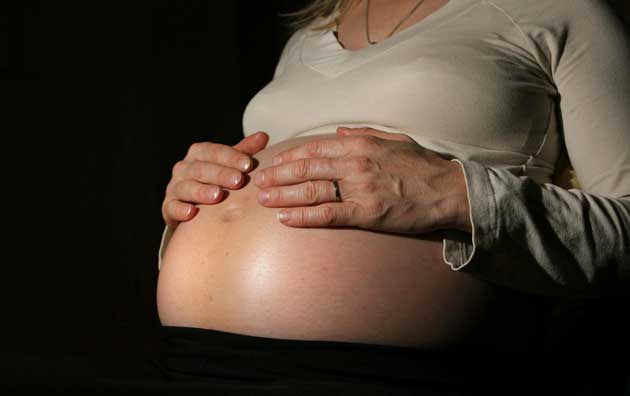Antibiotics to delay premature birth may harm babies

A warning about the indiscriminate prescribing of antibiotics to pregnant women to delay premature labour was issued to all doctors yesterday after research unexpectedly revealed that the practice may cause long-term harm to their babies.
The Government's chief medical officer, Sir Liam Donaldson, wrote to GPs, obstetricians and other medical staff following publication of the first study of the subject. The findings show an increased risk of cerebral palsy in the children of one group of women. There was also a small increase in problems such as poor eyesight or hearing. The results add to the growing evidence that what happens in the womb has a huge impact on the baby not only at birth but for decades beyond.
Sir Liam said in the letter that antibiotics should continue to be given to women in premature labour where there was evidence of infection, or risk of it because their waters had broken. "Antibiotics save lives and pregnant women with possible or obvious infections must be considered for treatment with antibiotics," the letter said. But it added that the drugs should "not routinely be given" to women in premature labour where there was no sign of infection and whose waters had not broken, in line with "existing good clinical practice".
Around 80,000 premature babies are born each year, one in eight of all births, and prematurity is one of the most common reasons for babies to die in the month after birth. Research over the past 20 years has suggested that a key reason for premature birth may be underlying infection and the prescribing of antibiotics to curb it has grown.
A clinical trial involving 12,000 women in the UK and around the world, published in 2001, found antibiotics delayed labour and improved outcomes for mother and babies at risk of giving birth prematurely. Now a follow-up study seven years later of more than 8,000 of the women in the UK, published in The Lancet, has found a puzzling difference between two groups in the original study. Among women whose waters had broken, giving antibiotics caused no long-term benefit or harm to their children, despite the improved outcome at birth revealed in the first study.
But among women whose waters had not broken, giving antibiotics was associated with up to a threefold rise in cerebral palsy, from 1.6 per cent in those given placebo to 4.4 per cent in those on two antibiotics, and a small increase in "mild" functional impairment such as poor co-ordination and poor eyesight.
A commentary by Professor Philip Steer of Imperial College London, says: "The lessons to be learnt seem clear: contrary to popular opinion ("might as well give them, they don't do any harm") antibiotics are not risk-free. There are good reasons not to give them in association with threatened pre-term labour unless there is clear evidence of infection. It is vital that practice is not extended by stealth beyond that which is justified by the evidence, and interventions in pregnancy should always be evaluated with proper long-term follow-up."
The Royal College of Obstetricians said in a statement: "These findings do not mean that antibiotics are unsafe for use in pregnancy. Pregnant women showing signs of infection should be treated promptly with antibiotics."
* Rates of influenza in babies born to mothers who were given a flu jab were reduced by 63 per cent, according to a study in the New England Journal of Medicine.
The study
Is it still safe to take antibiotics in pregnancy?
Yes – women with an infection, or at risk of infection, for example because their waters have broken, should be treated. Infections can be serious in pregnancy and antibiotics can be life-saving for mother and baby.
Why were the children of only one group of women affected – those whose waters had not broken?
This is the mystery posed by the study. It suggests the effect is unlikely to be due to any toxic effect of the drugs. If it were, both groups would have been affected.
Do the doctors have any idea of the mechanism by which harm was caused?
One hypothesis is that the antibiotics given to the women may have been sufficient to suppress infection in the womb but not to eradicate it, leaving the foetus exposed to a "hostile environment" for longer.
Subscribe to Independent Premium to bookmark this article
Want to bookmark your favourite articles and stories to read or reference later? Start your Independent Premium subscription today.

Join our commenting forum
Join thought-provoking conversations, follow other Independent readers and see their replies